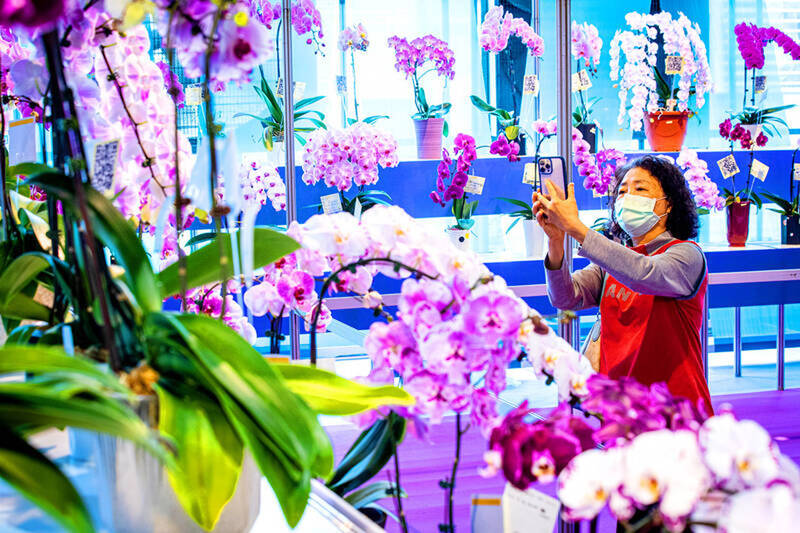Top Stories
Orchid and Tilapia Farmers Urge Lower US Tariffs to Protect Exports

Taiwan’s orchid and tilapia farmers are calling on their government to negotiate with the United States for lower tariff rates. The plea comes after US President Donald Trump announced a temporary 20 percent tariff on Taiwanese imports, reduced from an initially proposed 32 percent. This decision, made public on April 2, was intended to provide trading partners time to discuss more favorable terms.
President William Lai emphasized that negotiations with the US will persist, and he assured that the 20 percent tariff is not permanent. The Taiwan Orchid Growers Association has voiced significant concerns about the impact of these tariffs. According to the association’s secretary-general, Tseng Chun-pi, the US market previously accounted for 40 percent of Taiwan’s orchid exports without tariffs. Despite the delay in implementing the higher tariff, exports have already dropped by 15 percent due to a previous unilateral 10 percent tariff.
Tseng highlighted that most of the orchids exported to the US are seedlings. He suggested that the production priorities could be adjusted to better align with market demands. He also pointed out the potential for expanding into Japanese and Vietnamese markets, advocating for government support in the form of subsidies and loan extensions for small and medium-sized orchid farms to adapt their production models.
The implications of increased tariffs extend beyond orchids. The tilapia farming sector, which exports approximately 70 percent of its production to the US, also faces challenges. Tsai A-yu, president of the Tainan Nanxun Aquaculture Production Association, stated that while a 10 percent tariff is manageable, a 20 percent increase would severely disrupt the industry. She noted that tilapia processing facilities might push down the prices paid to farmers, further jeopardizing their livelihoods.
The aquaculture sector is already grappling with difficulties stemming from severe weather events, such as Typhoon Danas. Tsai urged the government to pursue negotiations to lower tariffs and ensure the sustainability of the tilapia industry.
Meanwhile, Yang Ming-hsien, an international business professor at Feng Chia University, pointed out that Taiwan’s tariffs on agricultural products are currently higher than those imposed on Japan and South Korea. He reassured that the Lai administration is working diligently on agricultural negotiations, which include addressing non-tariff trade barriers and enhancing investments.
Concerns linger within the agricultural community regarding potential concessions, particularly regarding US agricultural exports. Yang urged the government to prioritize food security and public health, adhering to scientific evidence and international standards.
Taiwan’s reliance on imports of bulk grains, primarily soybeans, wheat, and corn, amounts to nearly US$3 billion annually, with US imports contributing approximately US$1.3 billion last year. Yang suggested that Taiwan could leverage negotiations by increasing imports of US soybeans and corn, which currently constitute less than 50 percent of total imports, while wheat imports stand at around 70 percent.
Many importers have been sourcing soybeans and corn from Brazil due to lower prices. Yang recommended that the government provide subsidies to address the price gap and encourage US imports. Furthermore, extending the bulk grain safety stock threshold from two months to three months could help raise US import levels, with the additional costs partially covered by the government.
While it is customary for bulk grain delegations to negotiate prices and procurements in the US during September, Yang advised that action should commence earlier this month due to the uncertainty surrounding tariff negotiations. As the situation unfolds, both the orchid and tilapia farming sectors remain hopeful for government intervention to secure their export markets.
-

 World5 months ago
World5 months agoSouth Korea’s Foreign Minister Cho Hyun to Visit China This Week
-

 Business5 months ago
Business5 months agoStarling Bank Plans Secondary Share Sale, Targeting $5.4 Billion Valuation
-

 Top Stories5 months ago
Top Stories5 months agoMunsang College Celebrates 100 Years with Grand Ceremony
-

 World5 months ago
World5 months agoPAS Aims to Expand Parliamentary Influence in Upcoming Election
-

 Business7 months ago
Business7 months agoKenvue Dismisses CEO Thibaut Mongon as Strategic Review Advances
-

 Lifestyle6 months ago
Lifestyle6 months agoHumanism Camp Engages 250 Youths in Summer Fest 2025
-

 Sports6 months ago
Sports6 months agoDe Minaur Triumphs at Washington Open After Thrilling Comeback
-

 Sports7 months ago
Sports7 months agoTupou and Daugunu Join First Nations Squad for Lions Clash
-

 Top Stories7 months ago
Top Stories7 months agoColombian Senator Miguel Uribe Shows Signs of Recovery After Attack
-

 World7 months ago
World7 months agoASEAN Gears Up for Historic Joint Meeting of Foreign and Economic Ministers
-

 Health6 months ago
Health6 months agoNew Study Challenges Assumptions About Aging and Inflammation
-

 Business7 months ago
Business7 months agoOil Prices Surge Following New EU Sanctions on Russia









